It was mid-morning when nurse Chanthini Thomas got a call from the front office.
Was it a parent? Maybe administration?
“Hey Nursey!”
Thomas recognized that voice immediately. The last time Thomas had seen this student, she was holding a school diploma. Now, a bouquet of flowers bloomed in the student’s arms.
“I wanted to see you,” the student said. “I wanted to bring you flowers.”
A former Bellaire student, she used to regularly visit the clinic for relief from severe menstrual cramps that left her unable to walk. Every time, Thomas comforted the student while she laid on the nursing care bed crying from the pain.
After doctor referral notes, emails and calls from Thomas to the family, Thomas personally visited the student’s mother’s workplace, urging a hospital visit.
Doctors quickly diagnosed the student with symptoms of uterine fibroids. Thanks to the early detection, she was able to receive necessary surgery.
“You saved my life,” the student said.
This student was just one of Thomas’ thousands of patients in a career stretching across 30 years. She remembers each of them. There was the student who collapsed in PE from a cardiac arrest. The girl who needed help treating a potential STD. And the 6-year-old whose reported “poor classroom focus” was later diagnosed as leukemia.
Working at the Bellaire clinic since 2014, Thomas has treated over 100 illnesses and disorders to keep students healthy and able to attend class.
“Our school has all kinds of illnesses, asthma, diabetes, seizures and more,” Thomas said. “If there was no nurse, nobody would know how to respond to those kinds of emergencies. People think nurses just give out ice and band aids. It’s not like that anymore because kids come to school with heart transplants. They come having chemo. I’m there to advocate for that child and family and to make sure they have what they need.”
Thomas is the only registered nurse in a school with around 3,000 kids. The burden of administering immunizations, filing medical documentation and responding to health emergencies “rests upon her shoulders.”
“No one realizes how busy it is,” General Clerk and frequent clinic aid Alexis Perez said. “It’s a lot of paperwork. Even when students arrive with just a cut, we have to write down what happened to them and examine how deep the cut is. It takes time to do all those steps. Nurse Thomas is often alone. She’s really patient and really does care about the students, but it’s just a lot on her.”
Thomas treats 30 to 50 students daily, but her work begins two hours before the first patient even arrives at school – at 6:30 a.m.. From there, her dedication stretches into overtime nearly every day. Thomas typically doesn’t leave school until 8 or 9 p.m..
For Thomas, being a school nurse does not just mean caring for students’ physical injuries. It’s also tracking down delinquent vaccination records to ensure herd immunity. Organizing documents for all “homebound” students who can’t physically be at school, so they aren’t forgotten. “Bridging the gap” between immigrant students who have never had healthcare and the dentists, optometrists, surgeons and resources they need.
“I want to cry every day because it’s a little overwhelming,” Thomas said. “What stresses me the most is when it’s coming at me from all directions. Right now, there are parents applying for 504 Plans. The district has deadlines for immunizations. Then, there are kids who come in here trying to get out of class. It’s hard. But someone needs to help keep kids in class, preventing downtime. I stay with the counselors, stay with the AP, stay with the attendance office, to make sure that students’ needs are addressed.”
Even when greeted by nothing but mountains of paperwork and unfilled doctor referrals every morning, Thomas said that she wouldn’t want to be anywhere else.
“I absolutely love it,” Thomas said. “I love my job because I get to interact with the kids. The paperwork makes me crazy, but I get joy out of being able to make a difference, to teach them, to comfort them, to support their family. That fulfills me.”
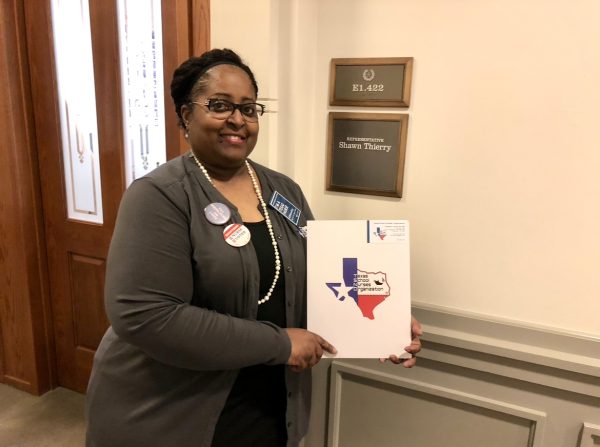
She carries the experiences from her past positions with her into the school clinic. Her time working as a managing nurse in immediate care and responding to code blues in St. Luke’s hospital before Bellaire taught her how to “watch.”
“When people come into the clinic, before I say anything, I read their energy,” Thomas said. “I could see them walking, and I would pick out that their leg was broken. Sometimes it’s not physical. I’m looking at their body language and facial expressions. You can feel that energy.”
Thomas prefers school nursing over hospital healthcare because she can “be a part of somebody’s life for an extended period of time.”
“When I was at Lovett for 19 years, I knew the kids, their siblings, grandparents, aunts, uncles,” Thomas said. “You see the whole child and the whole family. The school has its own community, the students, the teachers, faculty, the environment. I connect with the community, forming that trust and the relationship, so that they believe me and I can believe them.”
She builds those connections when guiding freshman Riley Most to develop confidence in managing her condition. Most visits the clinic every day before lunch to take insulin shots for type one diabetes.
“When I first came in here, Nurse Thomas definitely showed me the ropes,” Most said. “At my last school, the nurse wouldn’t really do anything. I kept asking and asking, and she wouldn’t give me the full answer. Nurse Thomas really guided through my illness. She was so motivating.”
Although having extra time to care for her kids contributed to Thomas deciding to switch to nursing in the school system, it’s been 17 years since her kids have graduated and Thomas still hasn’t left. Her kids have become a motivation for her to persist in nurturing children.
“This is all I want to do,” Thomas said. “I feel like that’s my mission because I love my children. I love my own babies. I want to treat kids like how I hope somebody is there for mine. That’s the parental side of me.”
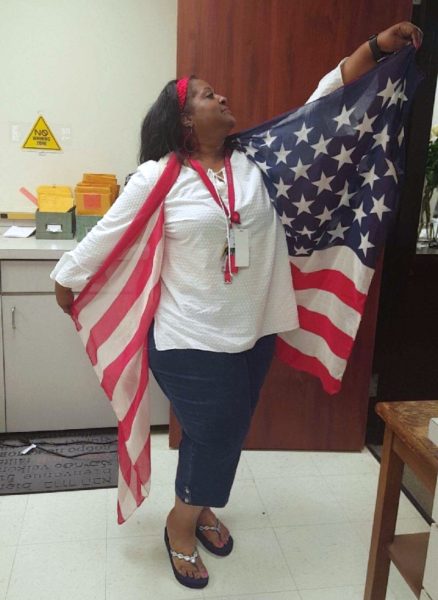
For senior Alastor Matta, who has been coming to the clinic since freshman year, the clinic truly is a “second home.”
“In an environment where many times, people are dismissed without being given a second thought, here, they’re treated equally,” Matta said. “They’re treated like a person. When I come to Ms. Thomas’s office, I feel like I can just spill my whole guts. She’s just there to listen and be there for me, and especially for kids that have panic attacks or reoccurring problems, it’s very important to have a space where kids can have those messy, uncomfortable moments.”
Thomas is grateful for the students that place their trust in her care.
“It fills my cup when you see you’ve made an impact,” Thomas said. “I’ve changed somebody’s life.”
And her patients thank her back.
“Thank you Ms. Thomas for always cheering me up and creating a welcoming environment, even if I’m just heating up my lunch or just trying to find someone to talk to,” sophomore Breah Scott said.
“Thank you for always being there and always being someone that I can talk to about my condition and for always putting a smile on my face when I run down here,” Most said.
“Thank you so much for the past four years,” Matta said. “I’ve seen you every single day, and I will remember you every single day after I graduate. It means so much to me that you’re always here to talk, to listen, to joke with, even if it’s just something small, like saying hello or asking how my day was. That kind of service is something you can’t measure.”



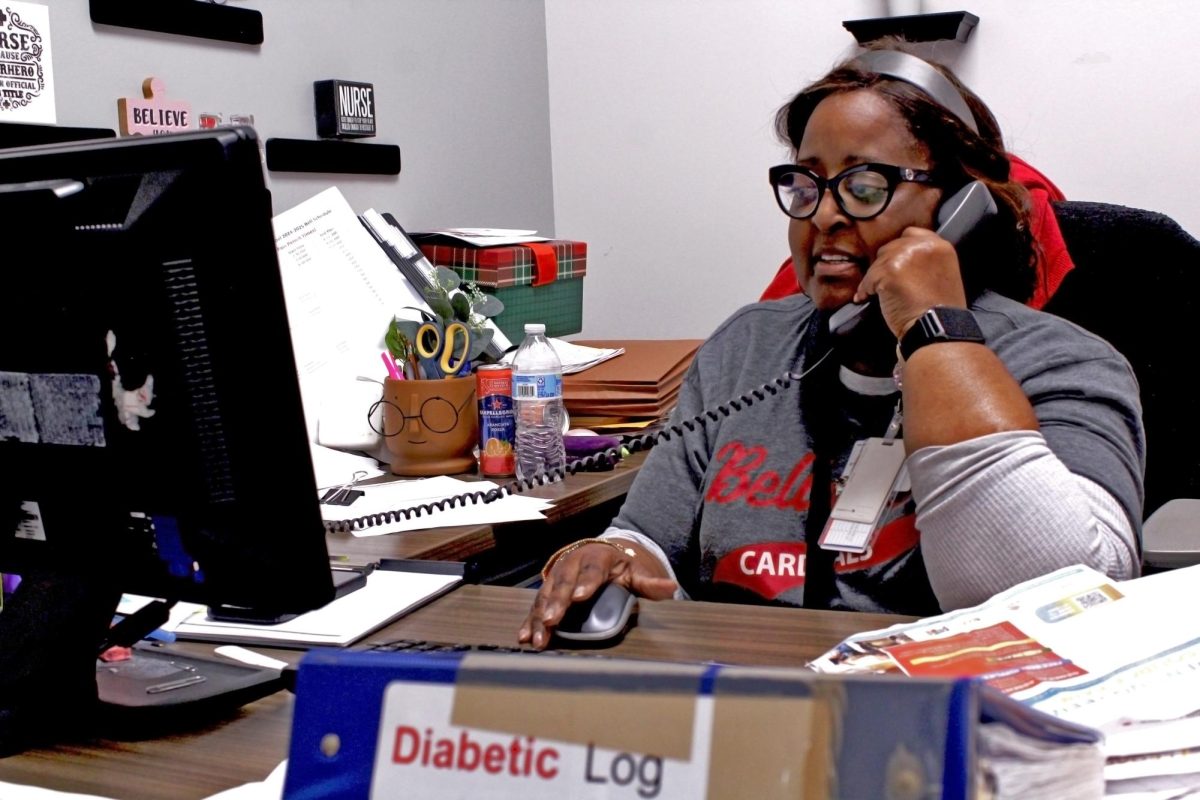
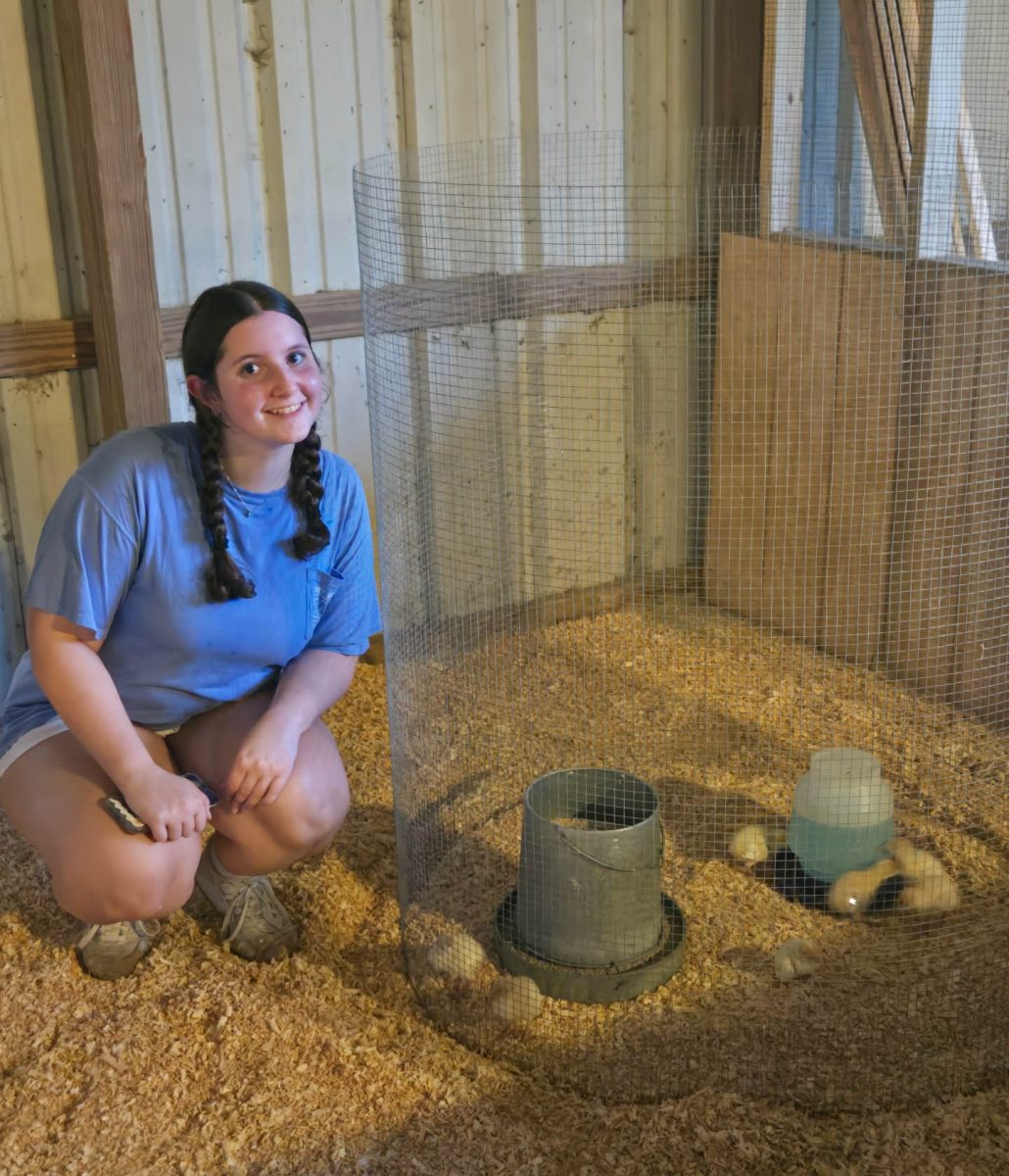

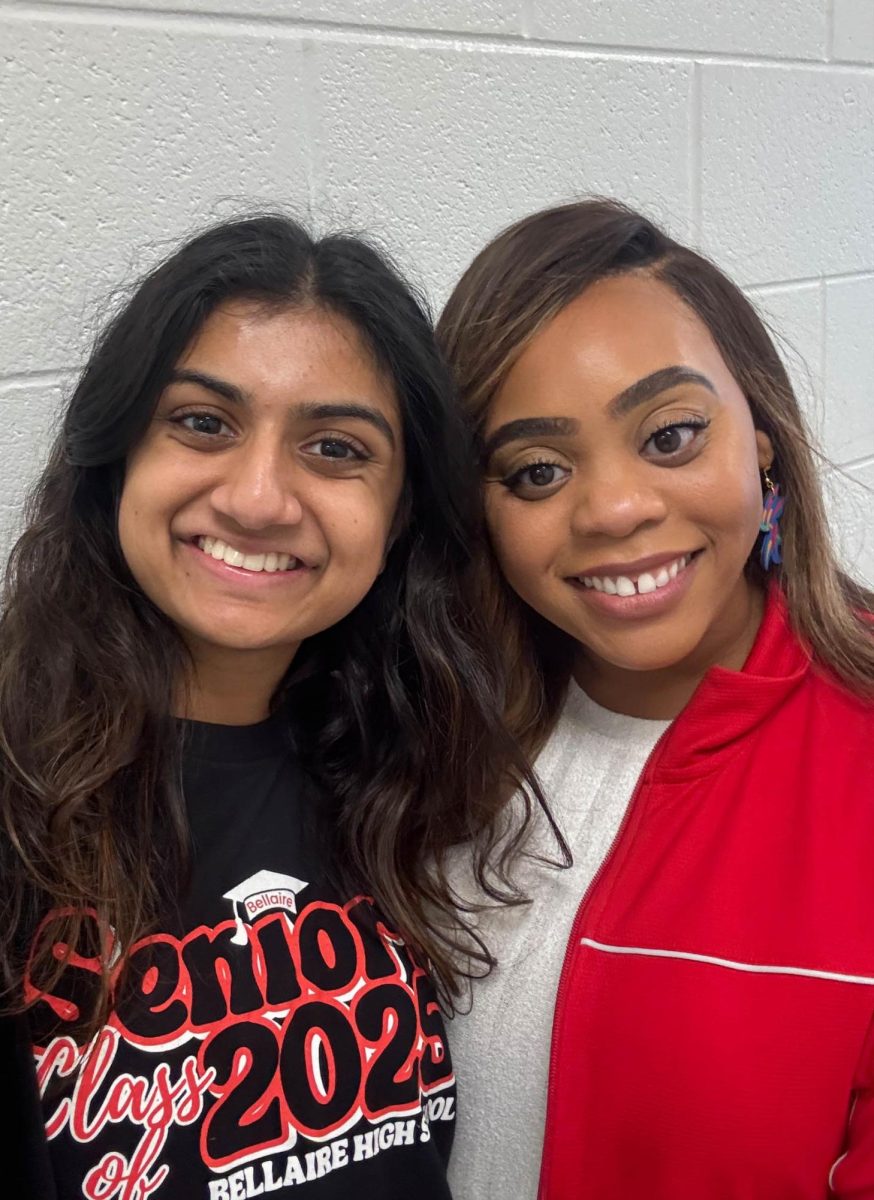
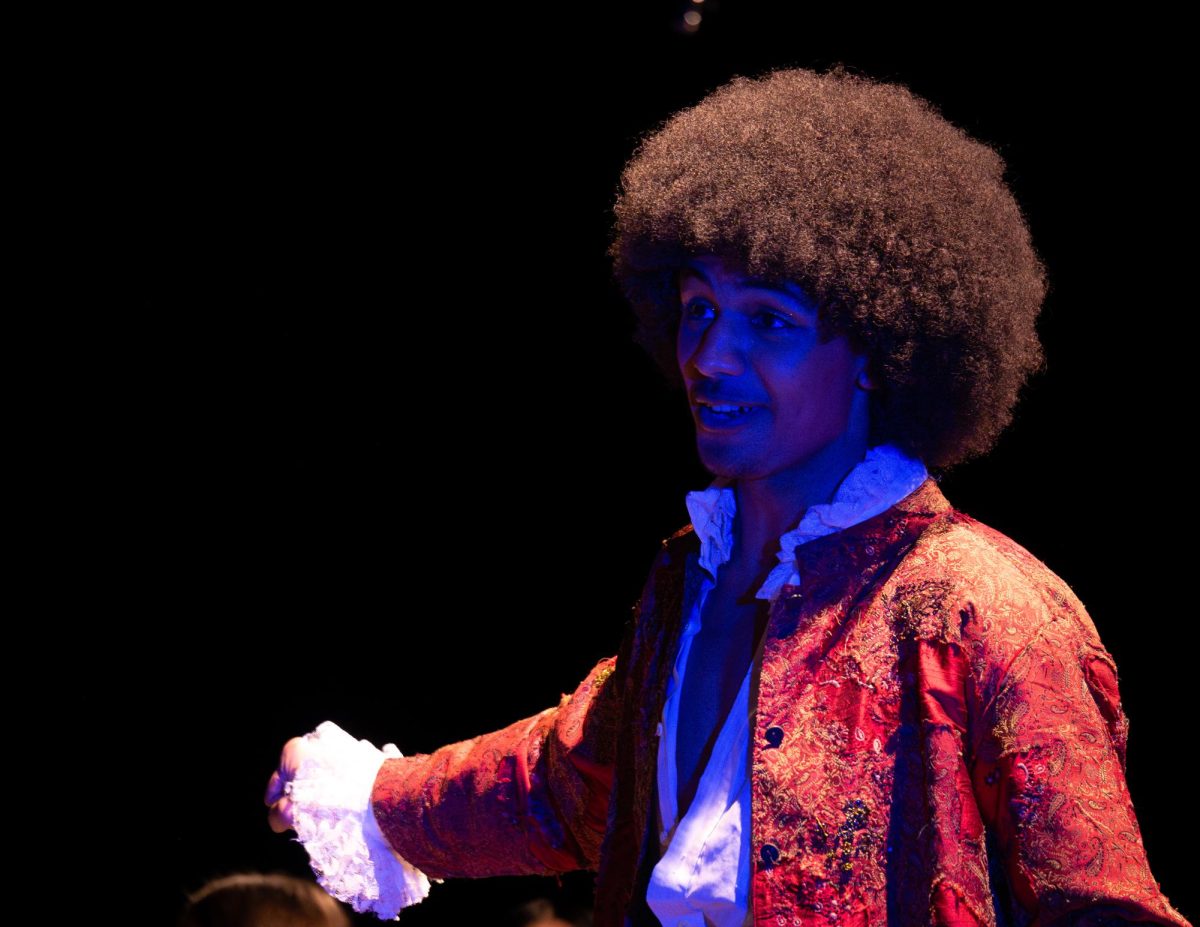
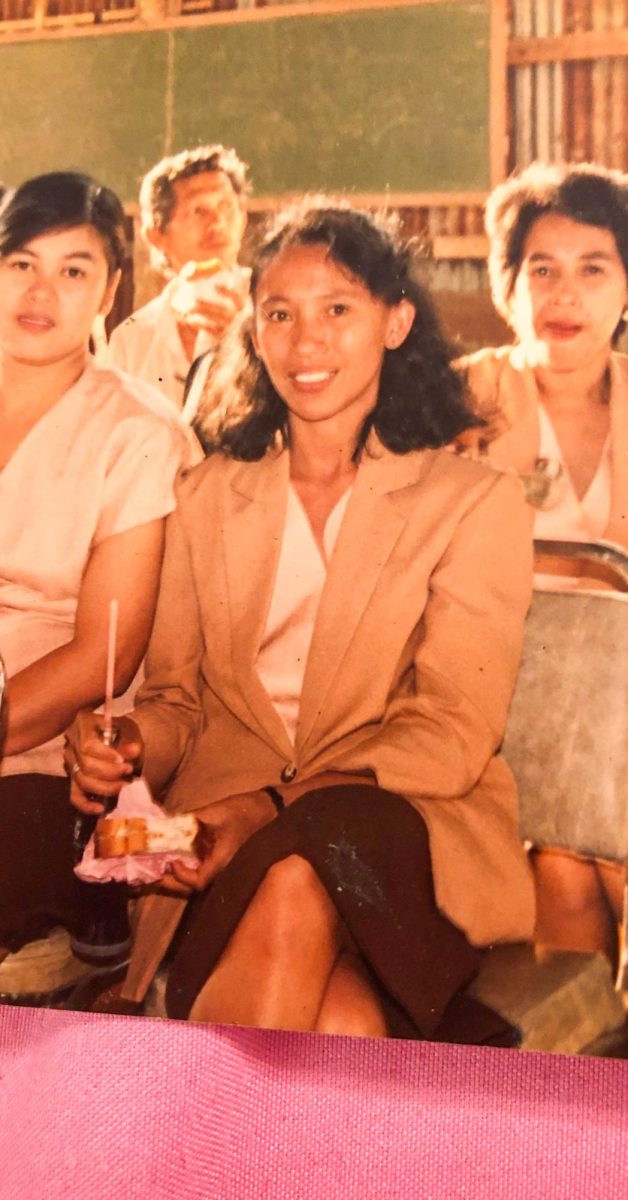





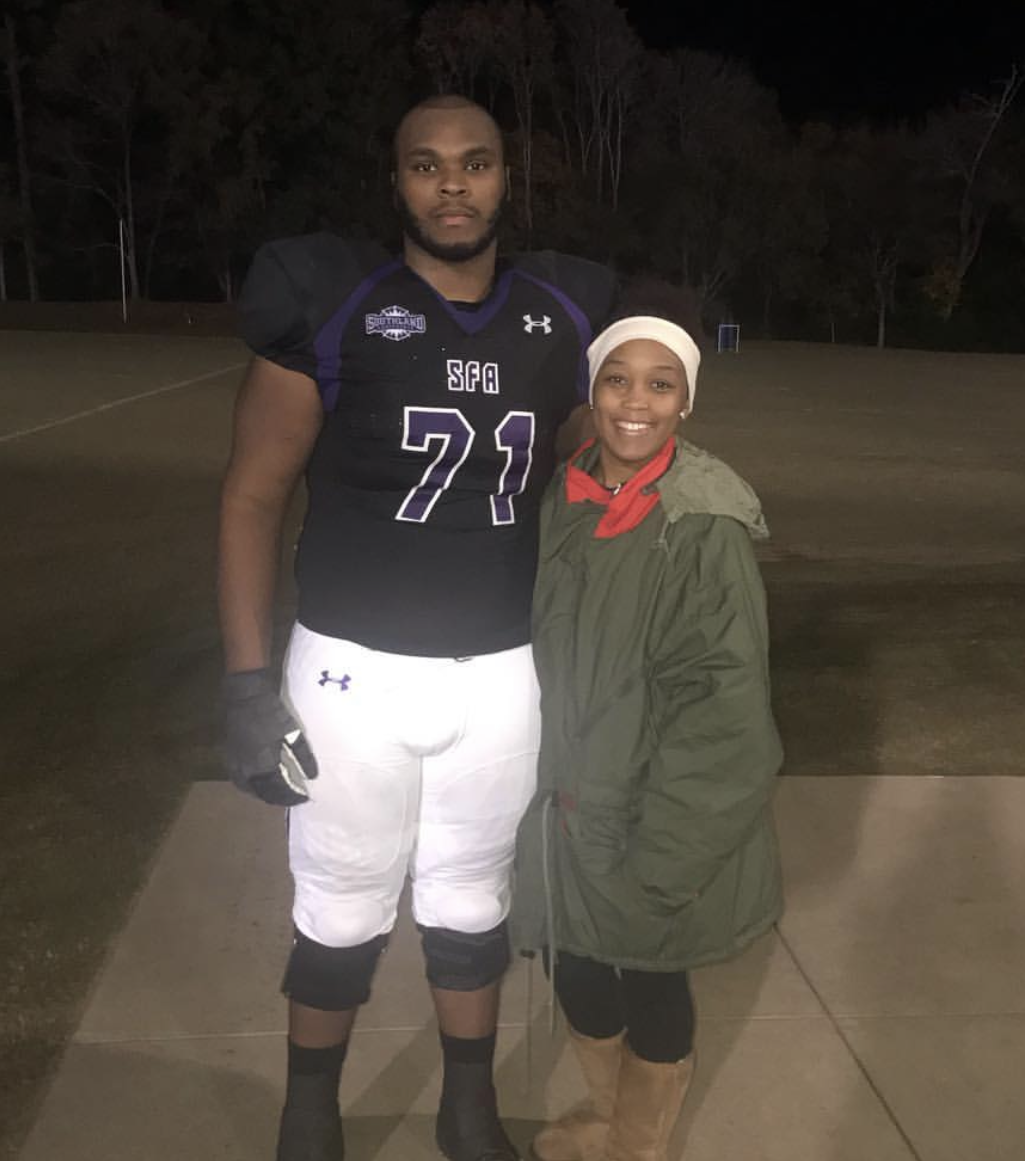
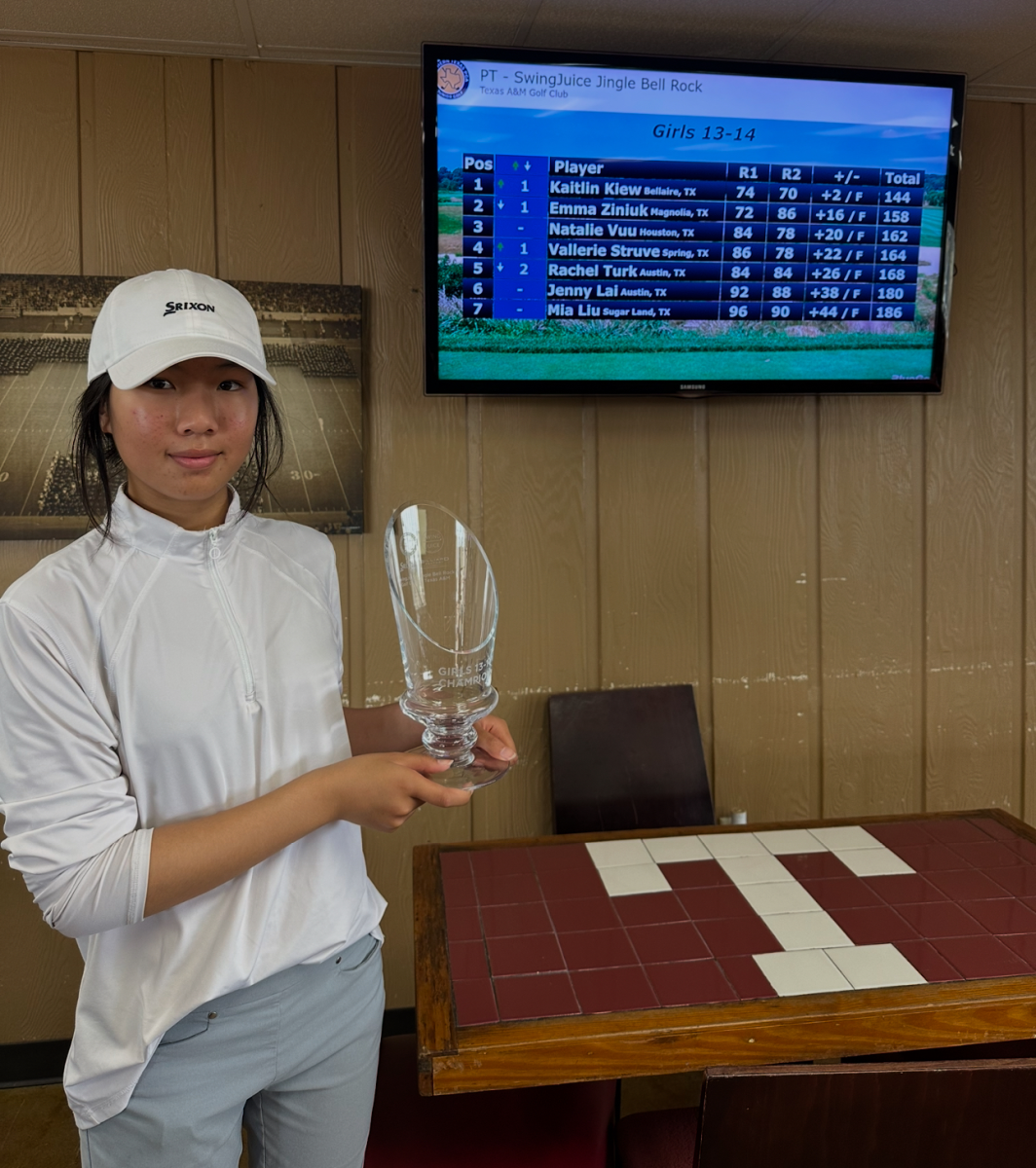
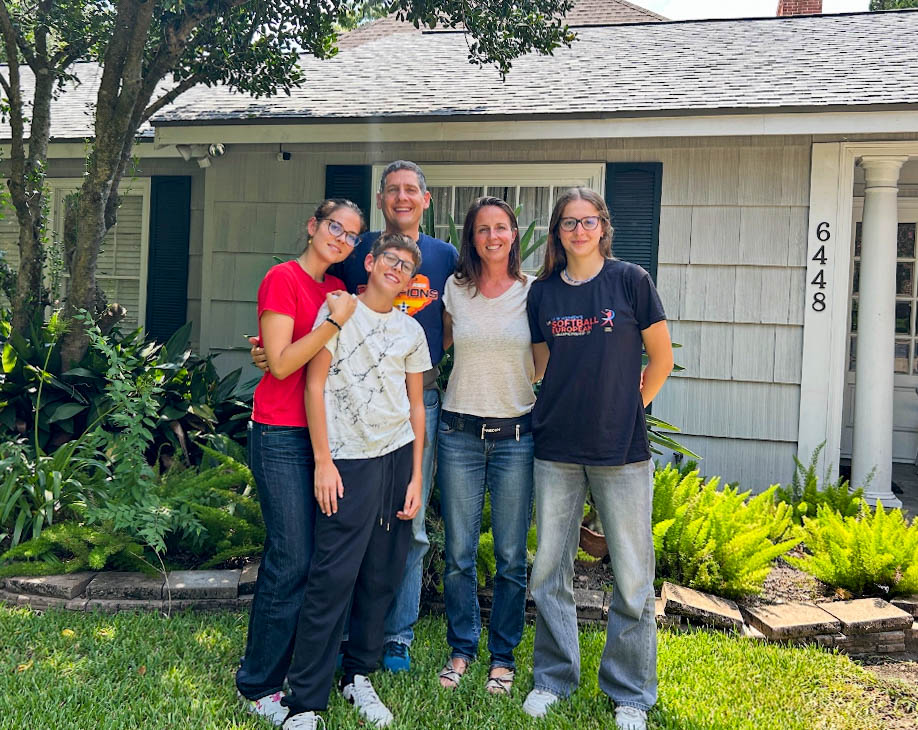
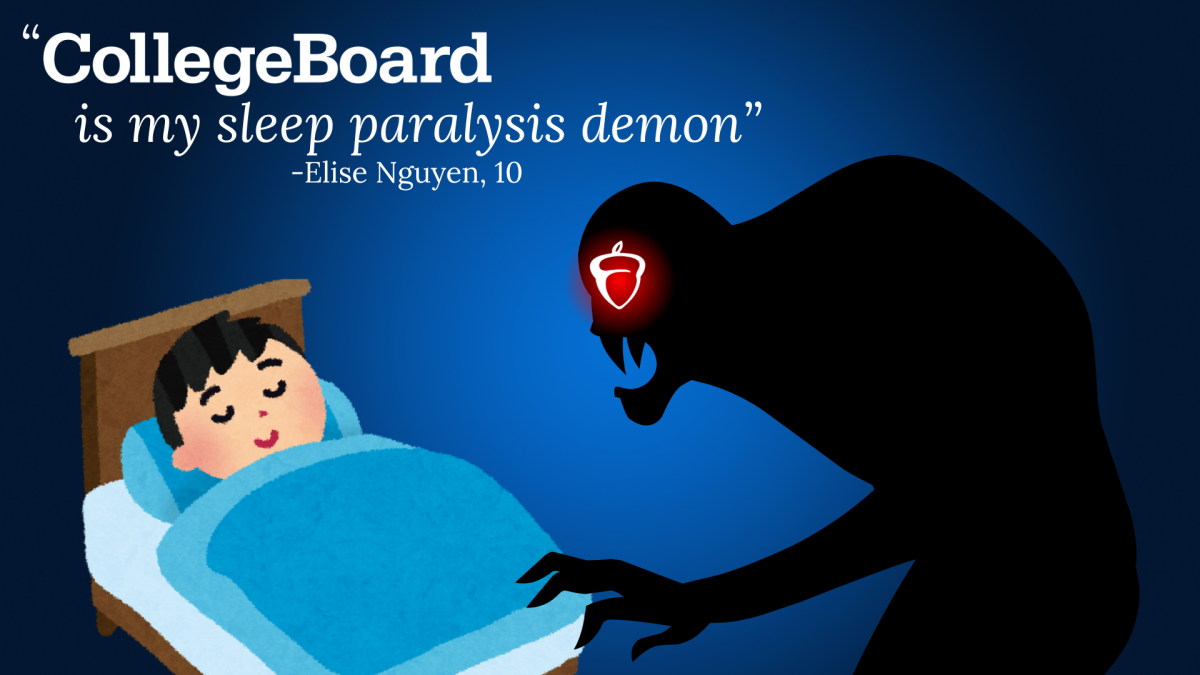
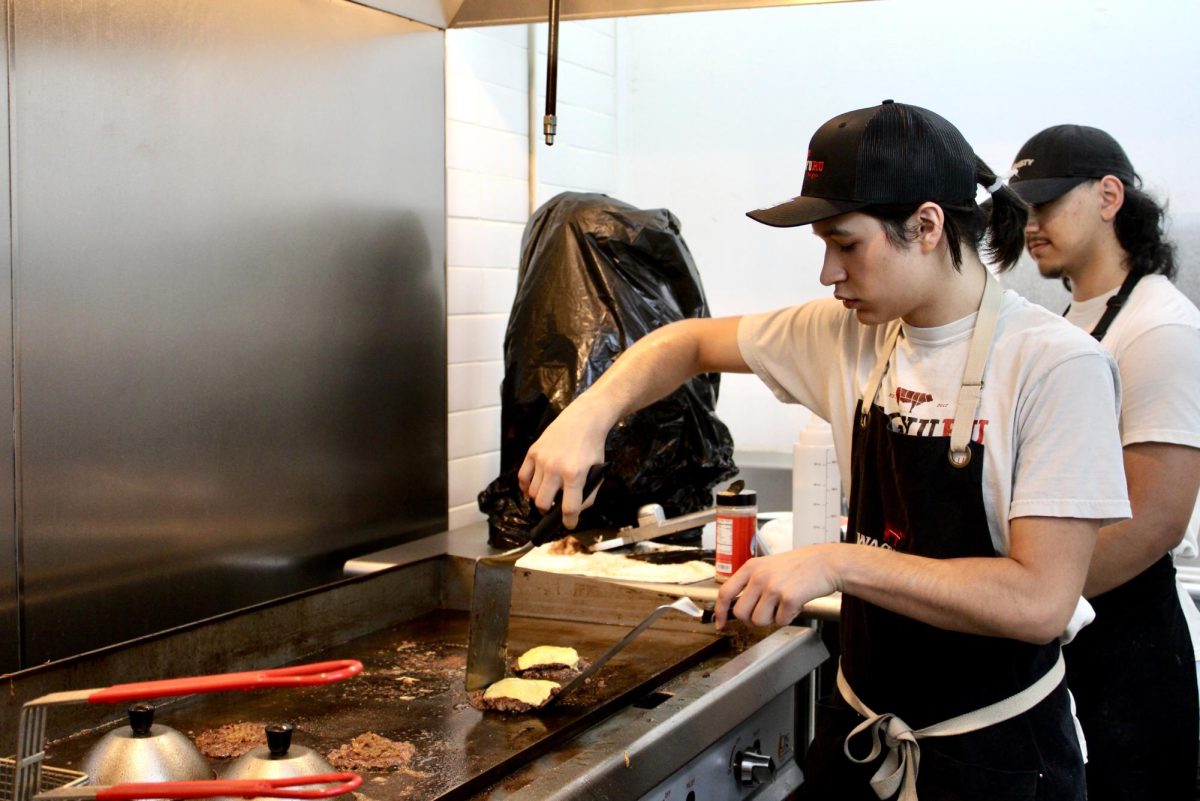
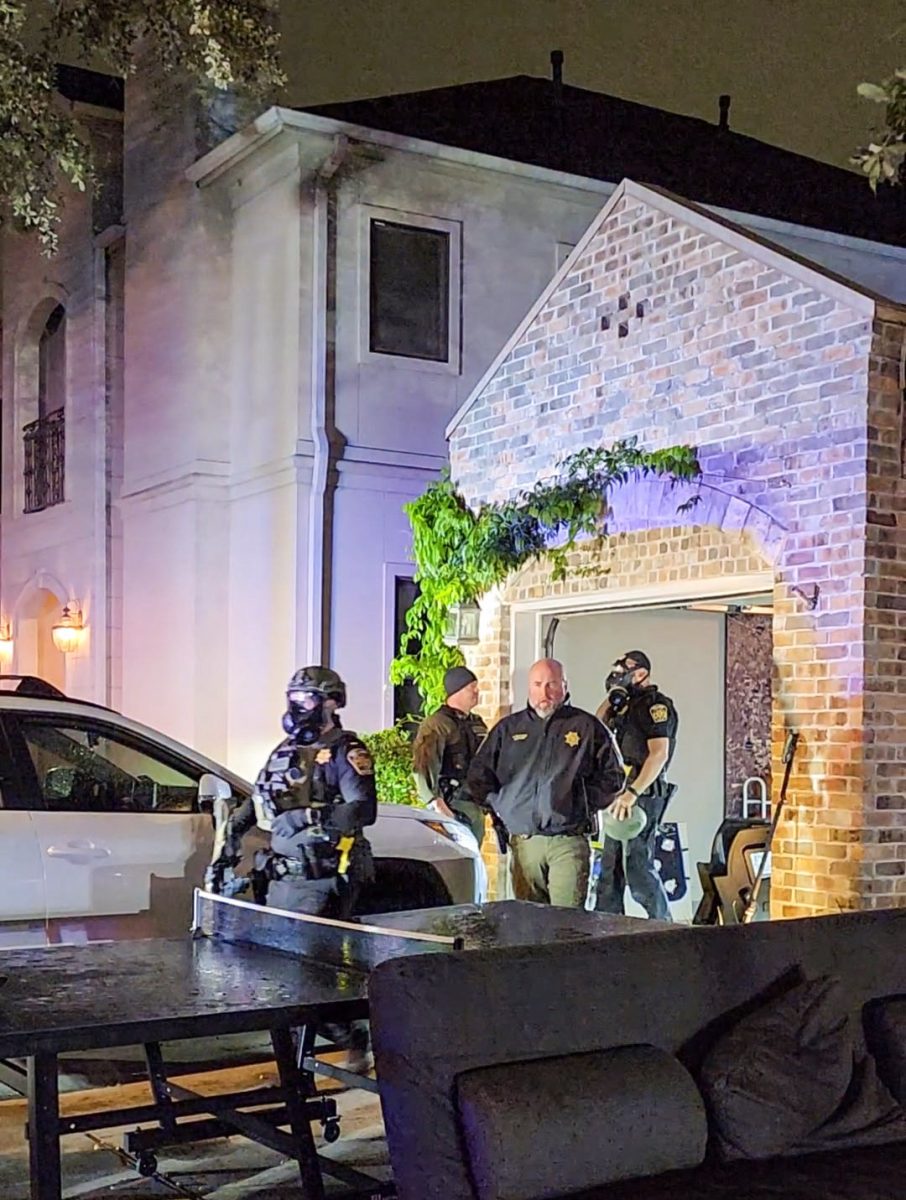
Sara Tilney • Apr 30, 2025 at 11:37 am
beautiful story!
Ada • Apr 29, 2025 at 2:29 pm
This is a beautiful story highlighting one of the most significant people in our school, great job Joy!
William-Paul Thomas • Apr 26, 2025 at 10:11 pm
My Amazing, Beautiful wife Chanthini, Nursie, and School Mom. We are blessed to have such a Wonderful Spirit in our lives! I simply couldn’t be any prouder! Chanthini Inspires the students at Bellaire, she can see the positive Sparks, the Potential in the students and encourages them to Believe, Become and be a Blessing!
.Our Family is celebrating you and we’re praising our Lord and Savior Jesus Christ! We salute our Stinky, our Mims, our Gigi, our Matriarch, our Queen and our Hero!!!
You Go Gurl!!!
Jessica • Apr 26, 2025 at 12:15 pm
This story is so sweet Joy! I didn’t realize how much of an impact Nurse Thomas makes in Bellaire. I also love the scrapbook at the end 🙂
yuna • Apr 26, 2025 at 11:12 am
this story is so well written and I can tell the amount of effort put into it. great job!!
catherine • Apr 25, 2025 at 5:33 pm
this was such a great story joy!!! i enjoyed reading it and learning about our school’s nurse
Alia Hassan • Apr 25, 2025 at 5:33 pm
amazing story joy!! thank you for highlighting such an important asset to our school!